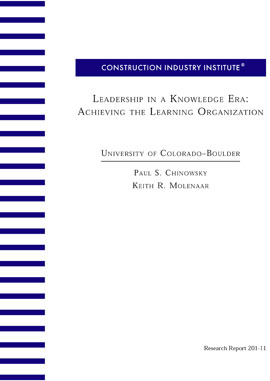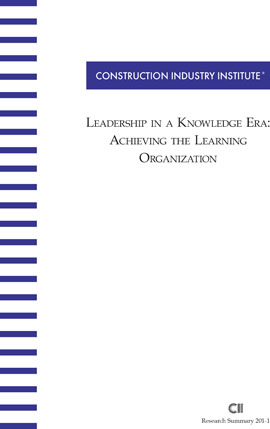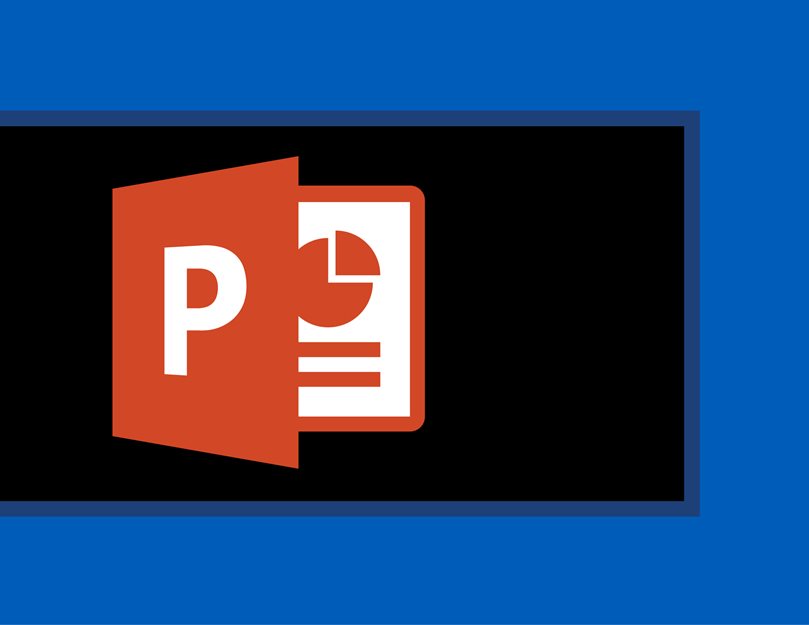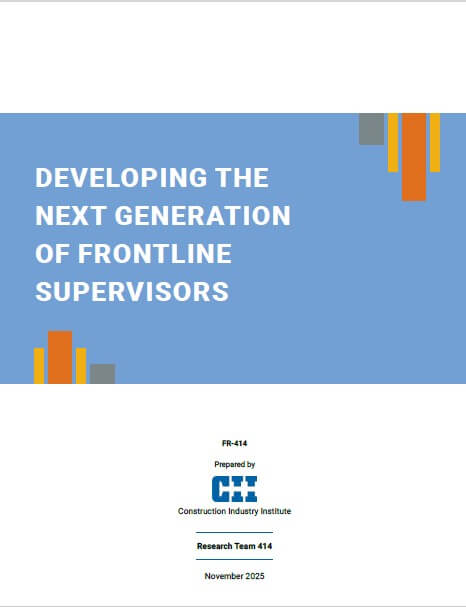
Leadership in a Knowledge Era: Achieving the Learning Organization
The transformation of organizations from production-oriented entities to proactive learning entities that continuously leverage knowledge to improve production is a primary objective of organization leaders and management researchers. The emergence of the “Knowledge Era” has significant relevance to the engineer-procure-construct (EPC) industry, where production has forever overshadowed organization development. Expectations of more creative solutions are driving this need for dynamic knowledge. Rather than a set of static processes and methods, constantly updated dynamic knowledge can serve as the basis for enhanced solutions. For the EPC industry, this dynamic knowledge is leading toward the development of knowledge-based services—services that reflect and leverage the ability of the organization to deliver solutions that are unique to each individual situation and customer.
In 2003, the Construction Industry Institute established its Achieving Learning Organizations Research Team to study current organization learning techniques and technologies in the EPC and other industries. CII also tasked the research team to provide a method for organizations to evaluate their current state of learning organization development and means for the continued development of a learning organization culture.
The results indicate that EPC learning organizations are still in the developmental stage. Because of this, the research team moved away from traditional collecting and presenting of industry statistics. Instead, it began developing a new framework to assist organizations in achieving a learning organization culture. Specifically, the team developed the Learning Organization Matrix and the Learning Organization Evaluation Tool (or LEONARDO), a tool that evaluates an organization’s status as a learning organization from inception through the mature learning stage.
This publication provides an overview of the research. The research team suggests that EPC companies focus on leadership, champions, direction, technology balance, and resource allocation. In doing so, they will make themselves more adaptable to becoming a learning organization.



